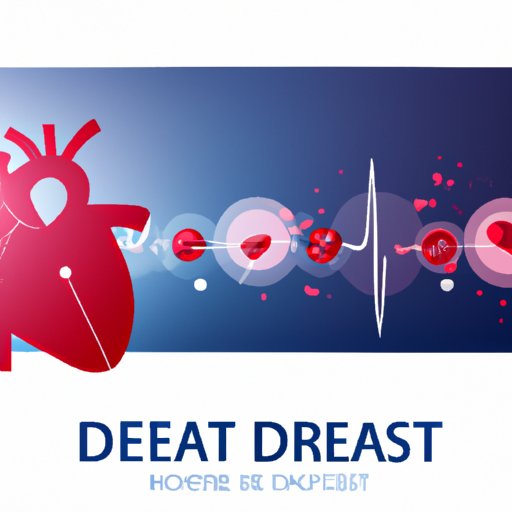
The Devastating Impact of Heart Disease
Heart disease, also known as cardiovascular disease, is a leading cause of death worldwide. According to the World Health Organization, it is responsible for 17.9 million deaths every year, accounting for 31% of all deaths globally. In this article, we will explore the risk factors for heart disease, compare it to other leading causes of death, and discuss advances in medical technology and treatment. We will also touch on the impact of socioeconomic factors, personal stories, and identify symptoms and where to seek help. Our hope is to raise awareness about heart disease and encourage readers to prioritize their heart health.
Risk Factors for Heart Disease
Several risk factors can contribute to the development of heart disease. Age is one of the leading factors, with the risk increasing as we get older. Family history and genetics also play a role. High blood pressure, high cholesterol, diabetes, and obesity are all risk factors. Lifestyle choices, including diet, physical activity, and smoking, can also significantly increase the risk of heart disease. Small changes in these areas, such as reducing salt intake, increasing physical activity, and quitting smoking, can make a big difference in reducing the risk of heart disease.
Heart Disease Compared to Other Leading Causes of Death
While heart disease is a top cause of death worldwide, it is important to note that it is not the only one. Cancer, accidents, and respiratory disease are among other leading causes of death. However, heart disease is unique in that it can lead to other cardiovascular problems, such as heart attack and stroke, which can further contribute to the mortality rate. It is also important to note that heart disease affects people of all ages and ethnicities, and it is a significant burden on healthcare systems worldwide.
Advances in Medical Technology and Treatment
Medical technology and treatment have come a long way in recent years, offering hope for those at risk or living with heart disease. Early diagnosis and treatment can be critical in preventing heart disease from developing into more severe conditions. Treatments may include medications, lifestyle changes, and surgical procedures, such as bypass surgery or angioplasty, to unclog blocked arteries. Advances in medical technology have also led to innovative treatments such as transcatheter aortic valve replacement (TAVR) and left ventricular assist device (LVAD).
Socioeconomic Factors and Heart Disease
Socioeconomic factors, such as income level, education, and access to healthcare, can significantly impact a person’s likelihood of developing heart disease. For example, those with lower incomes and less education may have limited access to healthy food options and may be less likely to exercise regularly. They may also have limited access to healthcare, which can affect the availability of preventative screenings and early diagnosis. It is essential to acknowledge and address these disparities to ensure that everyone has an equal opportunity to lead a healthy life.
Personal Stories
Heart disease can affect anyone, regardless of age, gender, or ethnicity. Personal stories can provide insight into the impact of heart disease on individuals and their loved ones. For example, someone may share their experience with a family history of heart disease, the difficulties they faced in making lifestyle changes, or losing a loved one to the disease. These stories can provide a powerful reminder of the importance of taking care of our heart health.
Identifying Symptoms and Where to Seek Help
Recognizing the symptoms of heart disease is crucial in seeking timely medical attention. Chest pain, shortness of breath, fatigue, and dizziness are some common symptoms. If you experience any of these symptoms, it is essential to seek help immediately. You can call emergency services or your doctor for advice on the next steps to take.
Conclusion
Heart disease is a significant health concern around the world. However, with increased awareness and early intervention, we can prevent and manage heart disease effectively. By understanding the risk factors, seeking medical attention when needed, making lifestyle changes, and advocating for equal access to healthcare, we can take control of our heart health and reduce the impact of heart disease on individuals and society.




